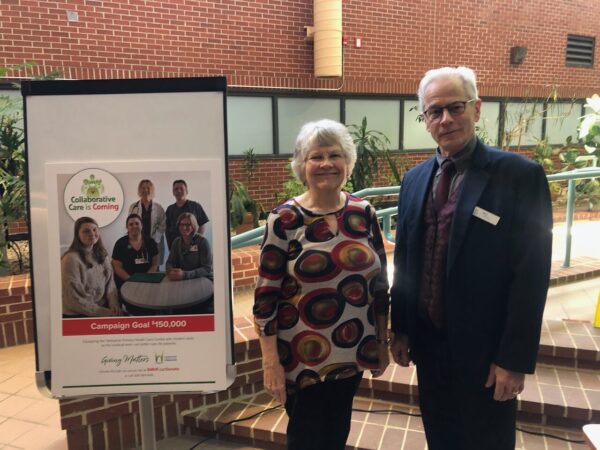
Hear this story as reported on Tantramar Report:
We’re officially two weeks into poetry month, and what better way to mark the occasion than with another conversation with a local poet.
Poet, assistant professor with Mount Allison’s English department, and trivia host Geordie Miller says that his sense of humor works its way into his poetic works.
“Humor provides me with some of the latitude that I need to be as serious as I want to be,” says Miller. “I do think that that humor in navigating difficult subjects sometimes it allows for some sort of lateral movement. I wouldn’t want to say something necessarily like, ‘and then it makes it more accessible,’ because sometimes jokes aren’t very funny, and maybe it’s more alienating when someone’s trying to be and it’s not coming off that way. But I guess it’s something that’s been there from fairly early on in my in my writing.”
But just because Miller sometimes cracks a joke doesn’t mean he isn’t sincere in his work. He says there is a relationship between sincerity and poetry.
“I don’t know that it’s a choice [to be sincere],” says Miller. “In terms of vulnerability in one’s writing…that takes a certain kind of honesty, to be open, and to open oneself to the world in that way. But I can sense that poetry perhaps can have this reputation in terms of what’s required to understand it or to read it. That might seem like…that compromises the sincerity, or directness, with which you can address certain things because it might just seem hopelessly alien to people…The poets that I admire, there is a certain directness which I might think of as sincere and still vulnerable and uncertain. I guess that’s the word I want to add to this conversation. In terms of vulnerability, there’s a fundamental uncertainty. You’re moving through contradictions and uncertainties, you don’t have it all figured out. You’re not preaching to people, necessarily. You’re sharing some of that uncertainty. That seems sincere.”
Miller teaches an introduction to poetry course at Mount Allison, which can be a challenge for students with little to no interest in the subject.
“No one’s walking in there…without some set of associations with poetry,” says Miller. “Those [associations] are various and I wouldn’t want to assume what those necessarily are. I want us to emerge from the class with either a reinforced interest or a newfound interest in poetry.”
The poets Miller admires work against barriers that sometimes emerge when discussing poetry in academic settings. He does, however, recognize the value in examining poetry in an academic context.
“It would be rather romantic of me to just to imagine those barriers away, right? Also to speak of all poetry as this kind of homogeneous thing…experimental poetry is very challenging and demanding. Maybe it does lend itself more easily to studying in an academic context. But that’s not necessarily all poetry. I hope that and I trust that there are avenues to access it [poetry] beyond beyond the classroom, but what the classroom can supply is some foundational orientation that can be helpful. But I want to believe that it’s not necessary.”
Miller started collaborating with another Sackville poet, Marilyn Lerch, over the course of the COVID-19 pandemic.
The pair wrote back and forth in a sort of “call and response” fashion, and will present their work together on April 22nd.
The link to the Zoom link for that event, and an interview with Lerch, are available here.
Over the course of the pandemic, and during the age of Anthropocene, Miller has constantly had to consider his role as a poet.
“It’s trying to find hope,” he says. “Find hope through collective and fighting back against that, rather than indulging in despair. I don’t want to think of poetry as an invitation to indulge in despair. It is a way of inventorying the nature of the challenge that we’re facing, and hopefully at its best, inspiring some courage to fight back in all the ways and collectives that we can discover and find in the fighting. There is no way to overstate what we’re facing.”
Miller finished the conversation by recommending some poetic works that make “good company” during the COVID-19 pandemic:
To Those Born After by Bertolt Brecht, Cruel Fiction by Wendy Trevino, I Can Hear You, and Can You Hear Me? by Nolan Natasha.
If you’re a poet or a poetry enthusiast, get in touch all month at reporting@chmafm.com.



















